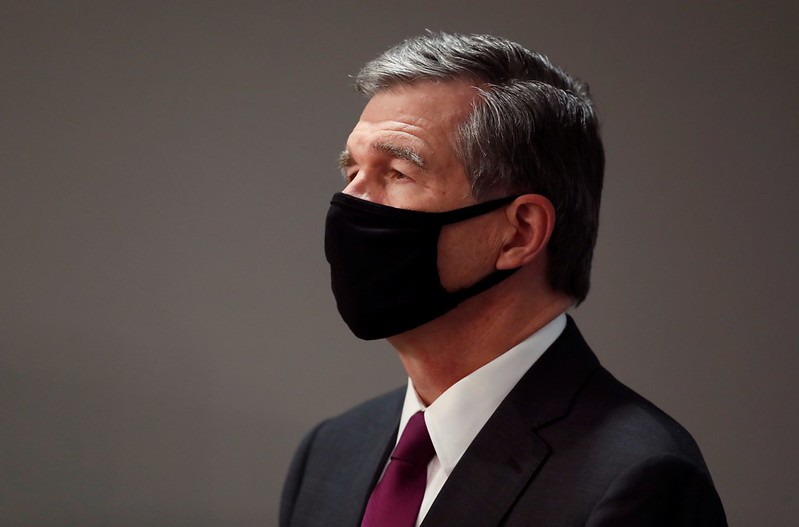Winter is coming, and Gov. Roy Cooper wants to keep North Carolinians from ending up in the cold. Per Executive Order 171, signed with the concurrence of the Council of State on Oct. 28, more state residents will be protected under a federal evictions moratorium through the end of the year.
Cooper said the order would clear up legal confusion about whether the moratorium, issued by the federal Centers for Disease Control and Prevention in response to the COVID-19 pandemic, covered tenants who live outside of federally subsidized housing. EO 171 explicitly states that all renters who meet certain income-based criteria qualify for temporary immunity from evictions.
The order also requires landlords to notify their tenants of the CDC moratorium before initiating eviction proceedings. “Confusion over who this order protects has caused inconsistent enforcement and unwarranted evictions in some parts of the state,” Cooper’s office noted in a press release announcing the move.
State action was justified, Cooper argued, due to dire projections from the nonprofit National Council of State Housing Agencies. According to a recent report, up to 410,000 North Carolina households can no longer pay their rent, and roughly 240,000 face eviction filings without additional protection.
Rural, white residents drive recent viral spread
Early in North Carolina’s COVID-19 pandemic, rates of coronavirus cases and deaths were disproportionately higher among the state’s Black population. Over the past several weeks, however, the virus has become more prevalent in white residents, particularly in rural areas.
Dr. Mandy Cohen, secretary of the N.C. Department of Health and Human Services, said state contract tracers had identified religious gatherings and informal social meetings as drivers of viral spread in rural communities. She added that in roughly half of cases, tracers were unable to determine the source of the disease, often because those infected had refused to talk with health officials.
Several reporters asked if some of this increase could be tied to recent political campaign events. Republican President Donald Trump and Vice President Mike Pence, as well as Democatic vice presidential nominee Kamala Harris, have visited North Carolina in the last two weeks; Republican rallies in rural areas such as Lumberton and Gastonia have been marked by tightly packed crowds and limited mask wearing.
Cooper and Cohen both declined to associate any specific event with the observed rise in cases. The Democratic governor, however, did express generalized disappointment over how some candidates have conducted their campaigns.
“It is very frustrating when they’re holding these events and then leaving, and North Carolina residents are going to have to deal with the aftermath,” Cooper said.
In other news
- As of Oct. 26, Buncombe County Health and Human Services has discontinued its online COVID-19 dashboard. According to a notice posted on the county website, Buncombe residents should now rely on the NCDHHS dashboard, which provides the same information and additional data on antigen testing.
- Western Carolina Rescue Ministries has started to distribute “compassion kits” to Asheville residents living on the streets. Kits contain personal protective equipment such as masks, hand sanitizer and gloves, as well as supplies such as granola bars and rain ponchos. Those wishing to donate or help with the effort should call 828-254-1529.
- Food Lion announced a $20,000 donation to MANNA FoodBank to help address food insecurity during the COVID-19 pandemic. The grocery will also make direct food donations to pantries in Cherokee, Cullowhee and Nebo.



Before you comment
The comments section is here to provide a platform for civil dialogue on the issues we face together as a local community. Xpress is committed to offering this platform for all voices, but when the tone of the discussion gets nasty or strays off topic, we believe many people choose not to participate. Xpress editors are determined to moderate comments to ensure a constructive interchange is maintained. All comments judged not to be in keeping with the spirit of civil discourse will be removed and repeat violators will be banned. See here for our terms of service. Thank you for being part of this effort to promote respectful discussion.